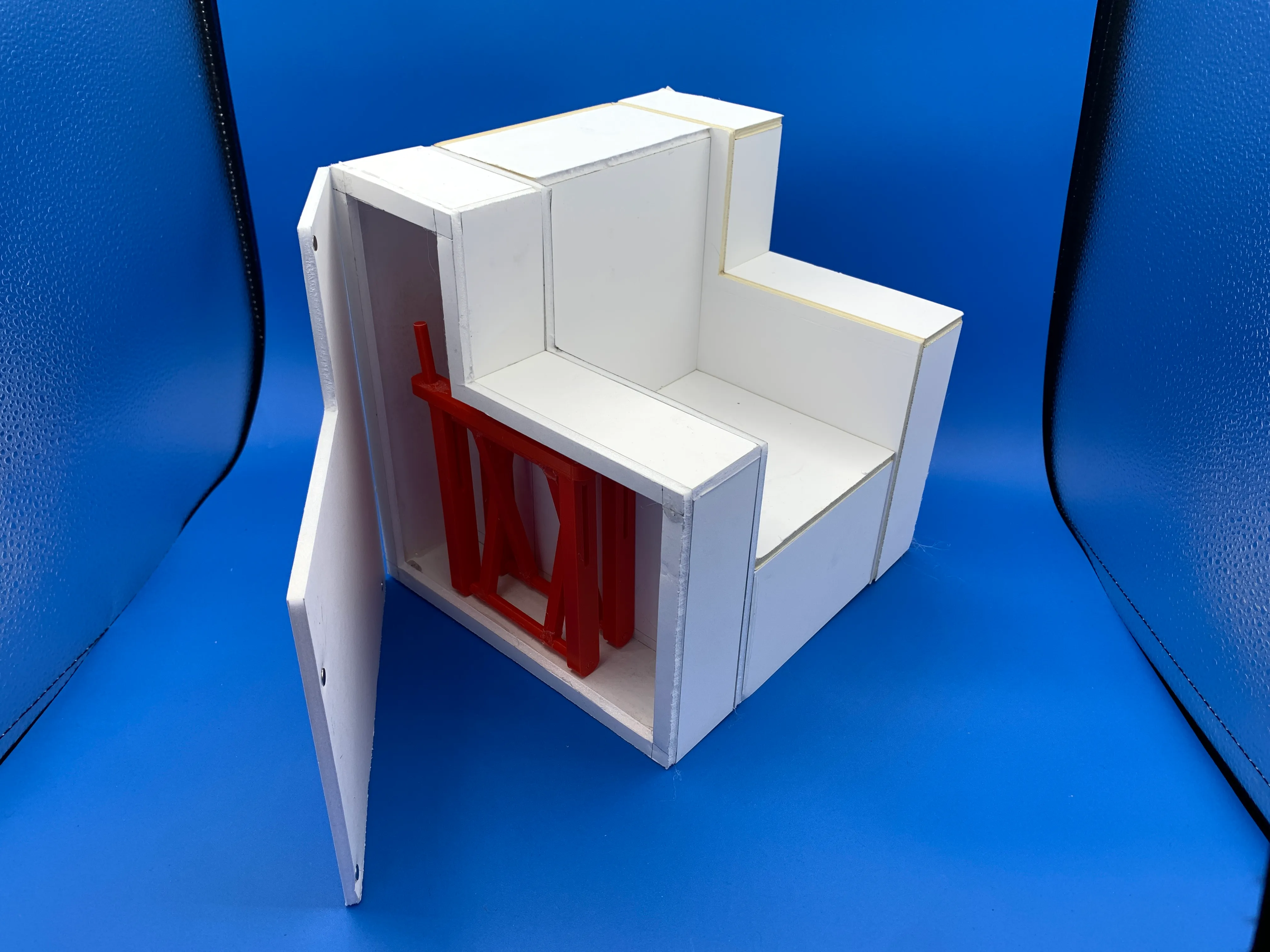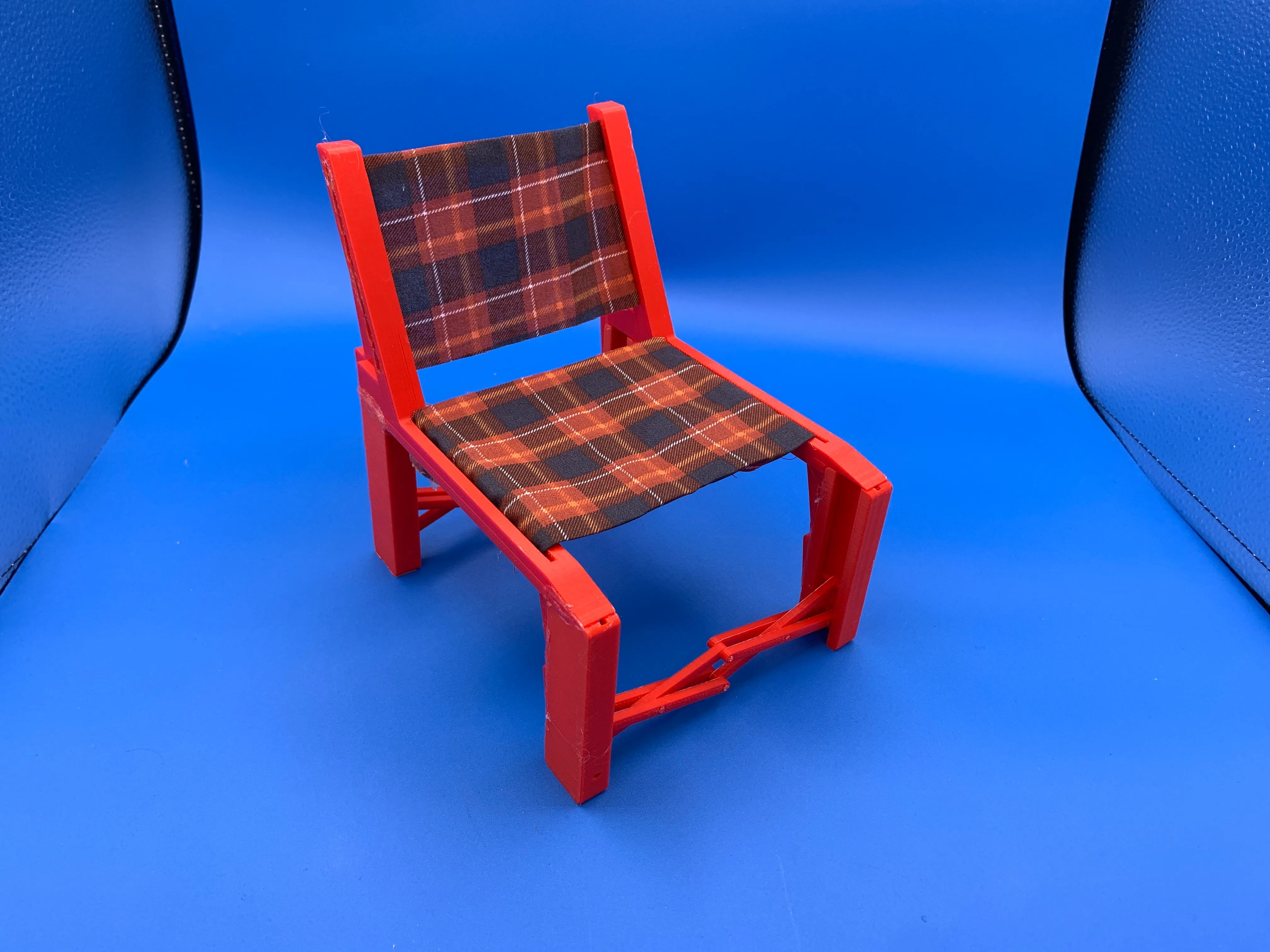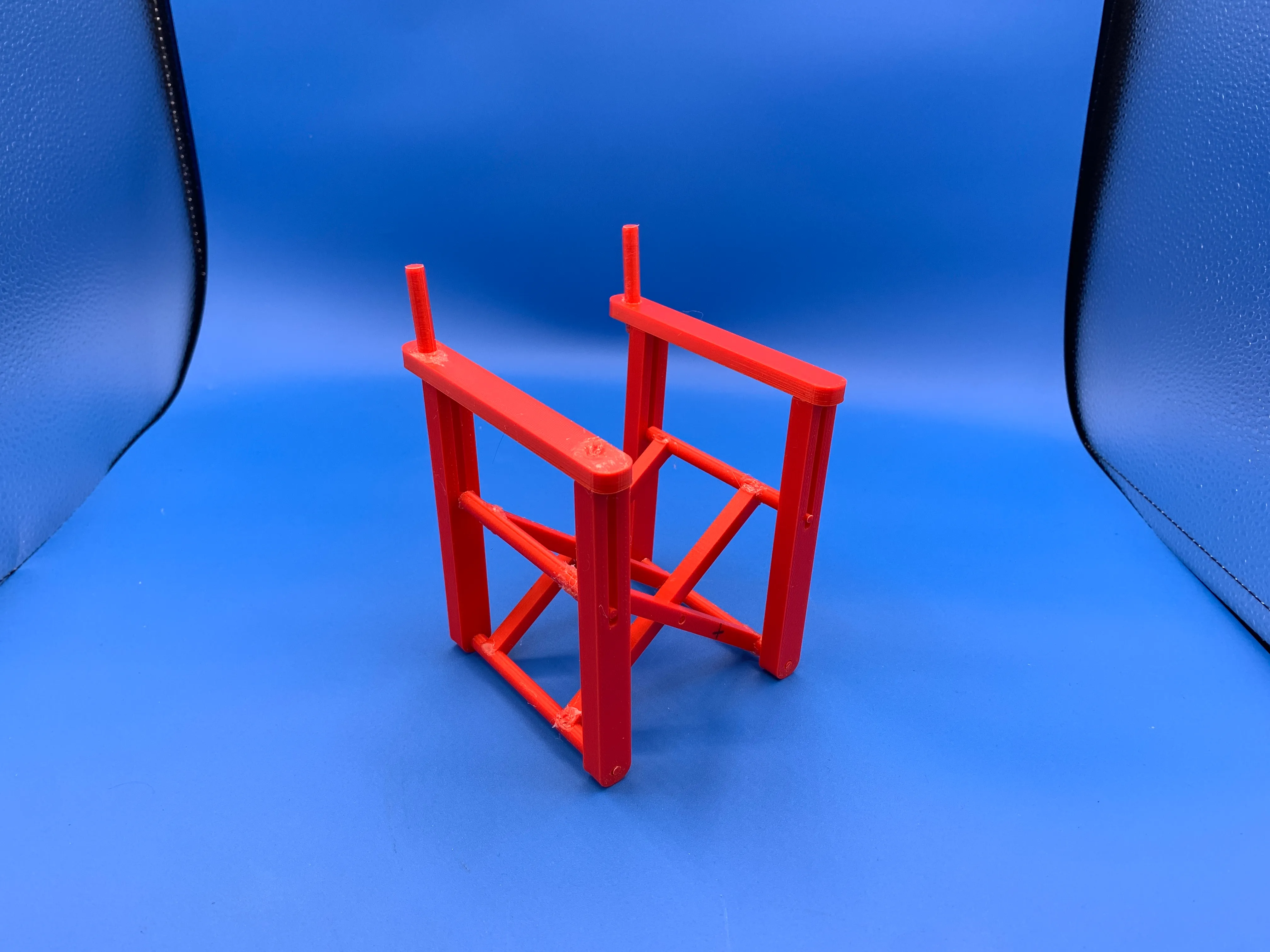Provides users with the option for expandable seating, wrapped within the footprint if a mid-century modern armchair.
Designed for compact living spaces, enabling users to comfortably accommodate guests and host gatherings.
Statistics from a survey of 47 participants.
.jpg)


%20(1).jpg)
90% of users live in a space with multiple inhabitants.
83% of users prefer Mid-century Modern for interior design styling.
71% of users found additional seating, storage, and space saving to be most interesting in multi-use furniture.
68% of users chose aesthetics, price, and functionality as the top 3 factors.

Earnest.com Survey: Average age of shoppers 24 - 33
.webp)
Pew Research Center: 36% of households are renters (2019)

RubyHome: Over 80% of renters have pets
Armchairs are a staple in the furniture space. While styles change alongside modern preferences, the functionality of these chairs remains the same. There is opportunity for an armchair that provides additional seating and storage within a self contained area.
Aesthetics
Functionality
Ease of Use
Systems
Structure
Manufacturing
Project Development Criteria
Budget
Capabilities
Timeframe
Product Sketches and Ideation
Sketches sparked creativity and collaboration, helping to define some initial product directions.
Prototypes provided an initial exploration of the product development direction with a focus on user needs.
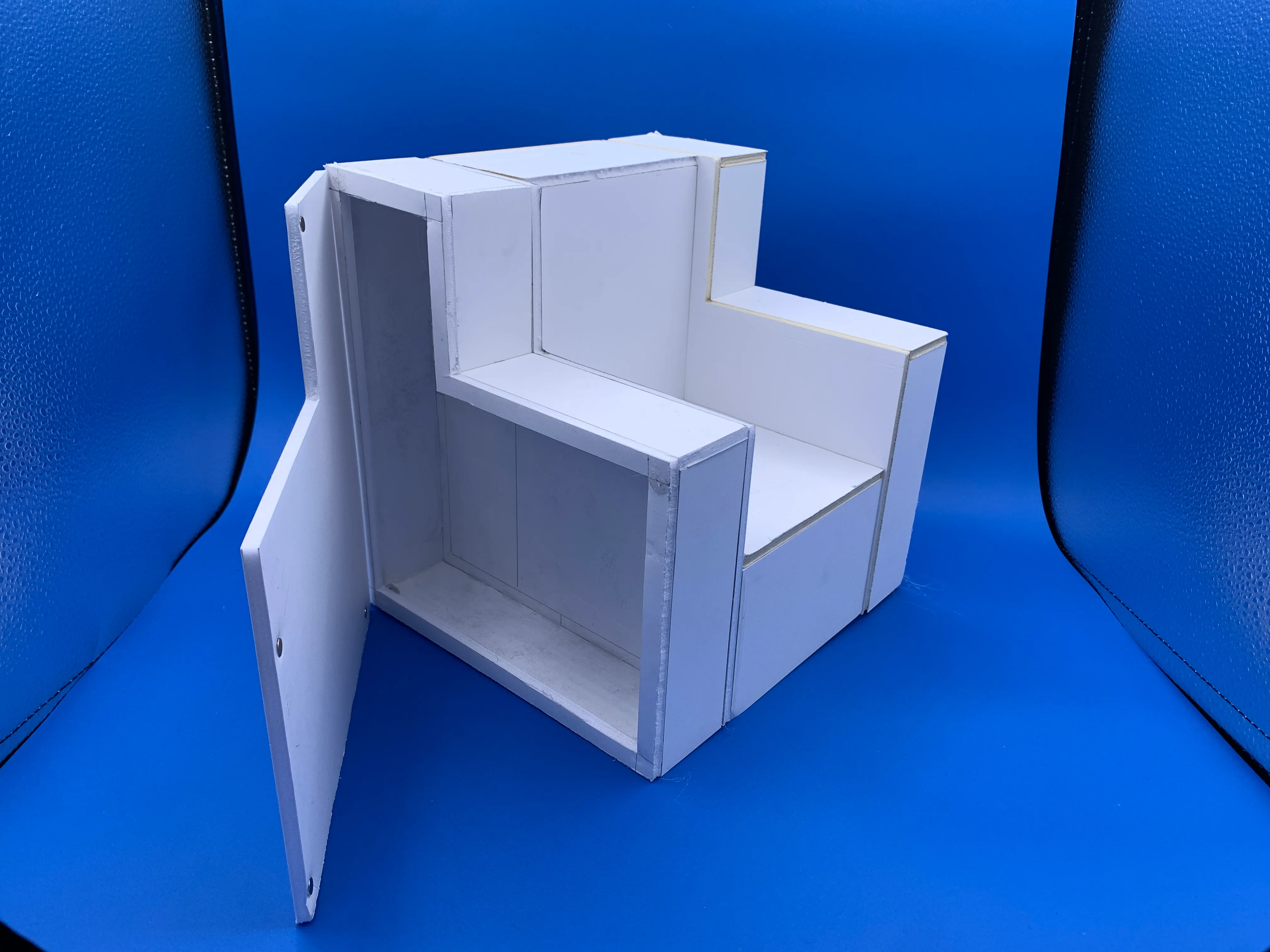
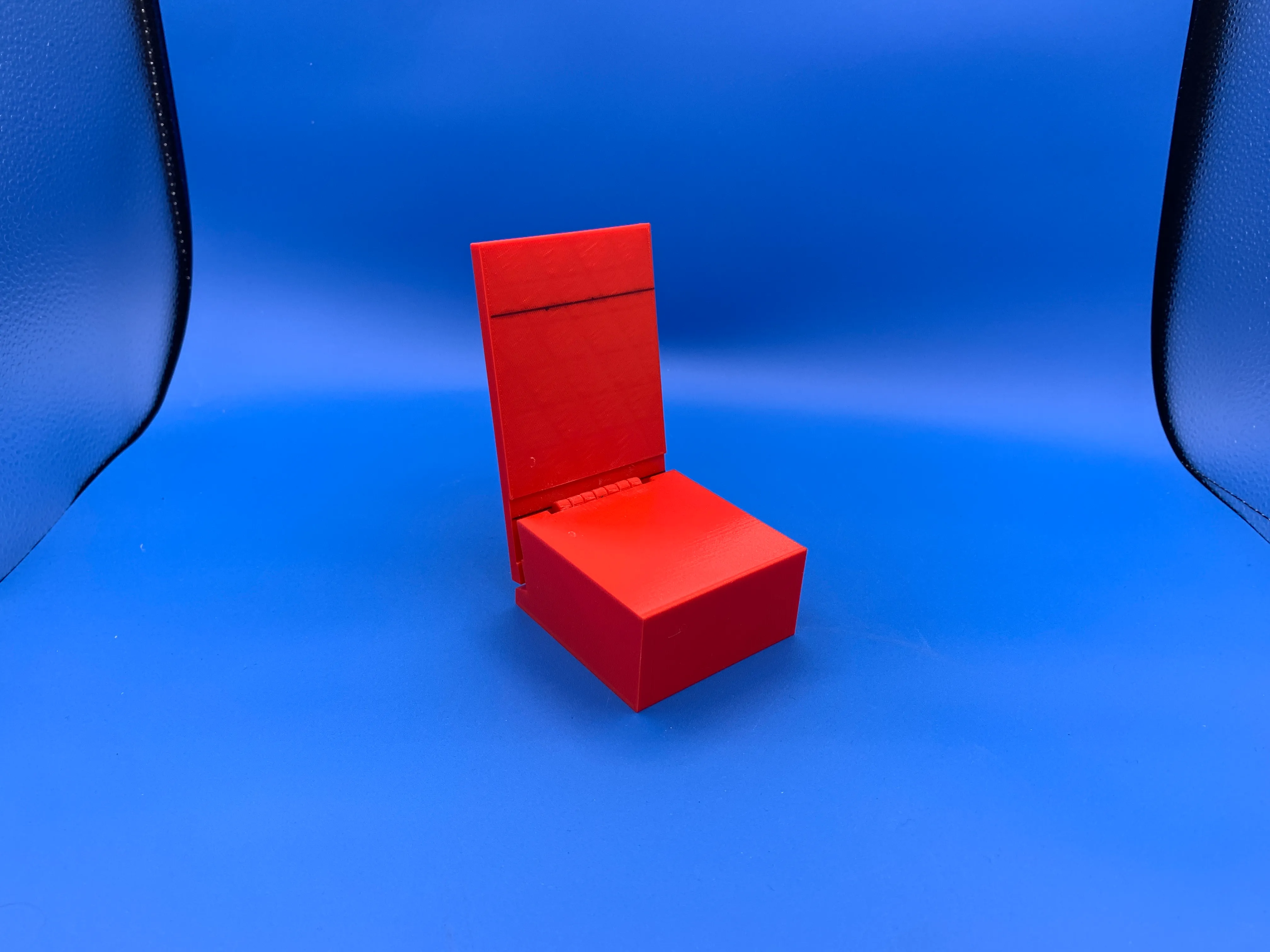
Concept 1
Concept 2
Concept 1 became the focus for further product development as it aligned well with our user needs and design criteria.
Inspiration
A mood board facilitated research into the field of mid-century modern furniture. This revealed insights into furniture design, the characteristics of this style, and the forms utilized.
Refined Product Sketches and Ideation
Alternative Design Sketches
Reduce number of components
Reduce number of assembly operations
Make assembly easier to perform
Fasteners are bad for locating
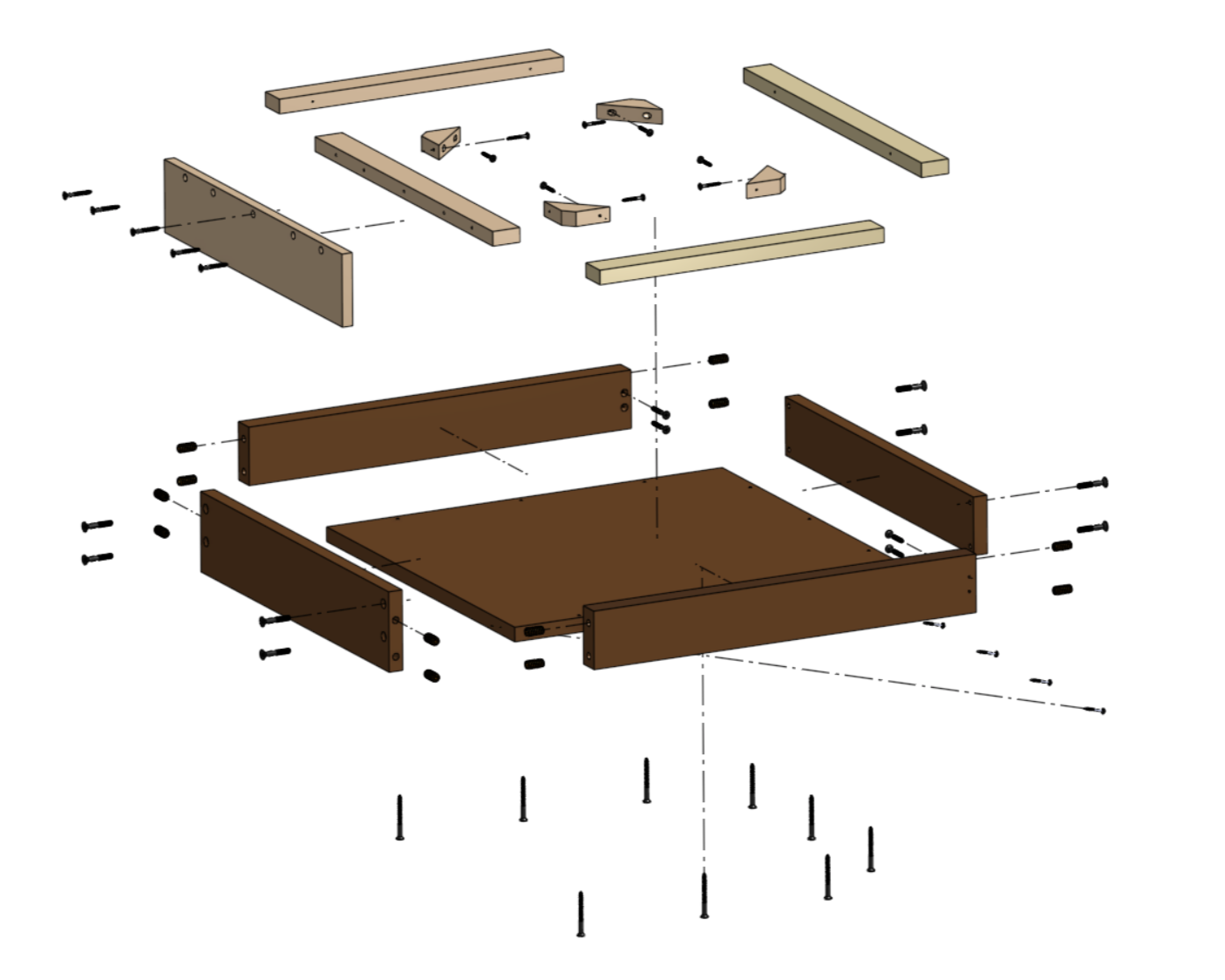

V1: Bad woodworking technique. Over reliance on fasteners.
V2: Proper usage of rabbet joint. 42% reduction in number of fasteners.


V1: Bad woodworking technique. Over reliance on fasteners.
V2: Proper usage of rabbet joint. 42% reduction in number of fasteners.
Reduce manufacturing time
Reduce process variation
Provide liberal tolerances
Simplify design geometry


V1: High precision needed for mortise and tenon joints. More labor intensive than alternative joints.
V2: Half lap joints are easier to manufacture, and provides similar or greater strength to alternatives.
Production Build (In progress)


.jpg)


%20(1).jpg)

.webp)




